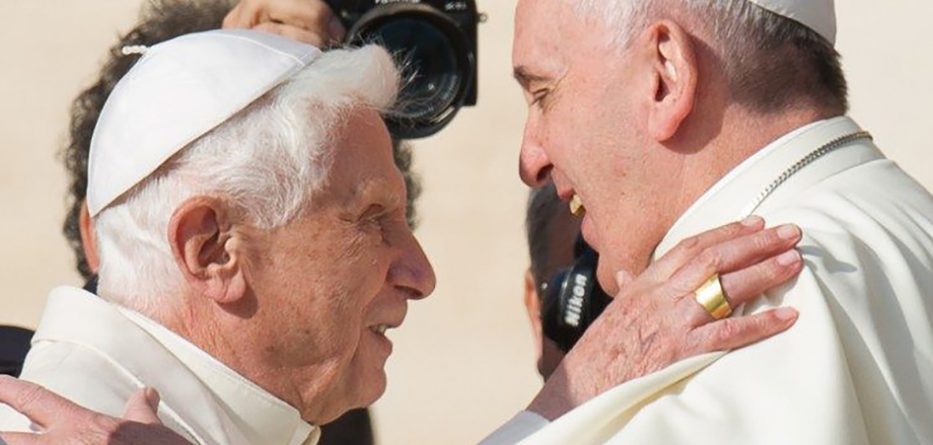In his message for the 2023 World Day of the Sick, Pope Francis expands on the story of the Good Samaritan in order to invite us to “reflect on the fact that it is especially through the experience of vulnerability and illness that we can learn to walk together according to the style of God, which is closeness, compassion, and tenderness.” The story of the Good Samaritan is then developed as an example of journeying together with the wounded, the victims and the abandoned around us.
The Pope in Fratelli Tutti points out that in the Good Samaritan story, Jesus tells the story of a victim of an assault and robbery lying injured on the road. Several persons passed him by, but failed to stop to help. These were people holding important social and leadership positions in society, yet lacking in real concern for the victim as well as the common good. They would not waste a couple of minutes caring for the injured person, or even in calling for help. Only one person stopped, and cared personally for the victim, at some personal cost to that person. In this way, the Good Samaritan showed by action that “the existence of each and every individual is deeply tied to that of others: life is not simply time that passes; life is a time for interactions”.
In the face of so much pain and suffering, our only course is to imitate the Good Samaritan. This is part and parcel of our call to be missionary disciples in today’s world. The parable clearly does not indulge in abstract moralizing, nor is its message merely social and ethical. It speaks to us of an essential and often forgotten aspect of our common humanity: we were and are created for a fulfilment that can only be found in love. We cannot be indifferent to suffering; we cannot allow anyone to go through life as an outcast. Instead, we should feel indignant, challenged to emerge from our comfortable isolation and to be changed by our contact with human suffering. That is the meaning of human dignity and is at the heart of our call to be missionary disciples for the sick and the dying.
In this regard, it may be timely to remember one of the last letters to the Church that the late Pope Benedict XVI issued for the World Day for the Sick 10 years ago. In his message, Benedict XVI refers to the desire of Pope St. John Paul II in inaugurating the World Day of the Sick for the day to be “a privileged time of prayer, of sharing, of offering one’s sufferings for the good of the Church, and a call for all to recognize in the features of their suffering brothers and sisters the Holy Face of Christ, who, by suffering, dying and rising has brought about the salvation of humanity”.
Pope Benedict XVI proposes that we reflect on the Good Samaritan as an exemplary figure to guide all those who care for the sick and the dying. Caring for the sick and the dying is not just a technical task, but a vocation of love, care and compassion for one’s neighbour as exemplified by the Good Samaritan. Care in a technical and excellent evidence-based sense is a means to an end – that of Gospel-centred love of one’s neighbour rather than an end in itself. For the Church, this care is expressed in pastoral, sacramental and professional terms.
Thus, the meaning of life and death, illness and suffering is not merely a secular concern. It concerns the human questioning that asks, “What does it mean to care for the sick and the dying, given that we too will become sick one day? What brings peace and hope to the dying, remembering that all of us will die one day? What is the role of faith in facing the issues of life and death?”
In facing the fact of death, the question then becomes, “What has the Church got to say about being at peace with the reality of death, living in hope in the face of death, and joining the communion of saints after death (i.e. looking forward to meeting those we love who have gone before us as we await those we love who will come after us)?”
Both Pope Francis and Pope Benedict XVI remind us that we are all called to be a Good Samaritan for others, and for those close to us. Pope Benedict XVI goes on to remind us of the innumerable figures in the history of the Church who helped the sick to appreciate the human and spiritual value of their suffering, so that they might serve as an example and an encouragement. How can we then together and synodally, recognise and respond to the human and spiritual value in the suffering of the sick and the dying, respecting their inherent dignity as human beings called to live life to the full, and whose bodies are temples of the Holy Spirit?
In closing, I invite all those called to be health professionals to attend a Formation session on the morning of the World Day of the Sick, and join everybody gathered together for the Diocesan Mass for the Sick, with Anointing, to be held at Mary Queen of the Family Parish, Blacktown.
For the formation session from 9 am to 10:30 am, please RSVP to met@parracatholic.org. For the Diocesan Mass for the World Day of the Sick, with Anointing, commencing 11 am, please RSVP for catering purposes to Hannah.portelli@parracatholic.org. Any questions and enquiries can be directed to Deacon Dr Michael Tan at Michael.tan@parracatholic.org.








